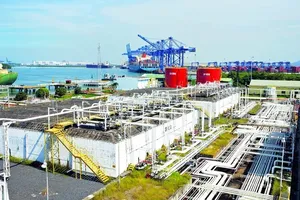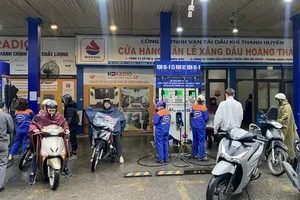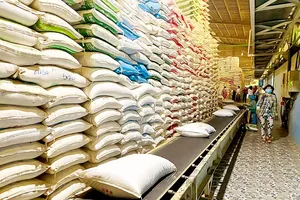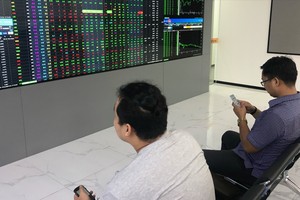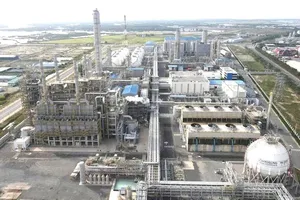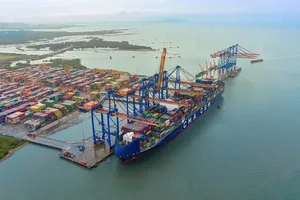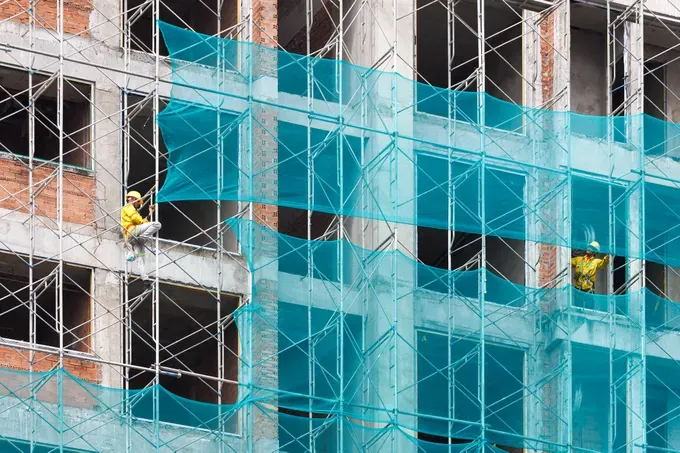
Statistics from real estate firms reveal that the market has witnessed a formidable surge of interest in many high-potential regions since the official provincial and municipal mergers took effect on July 1.
Deputy CEO Nguyen Quoc Anh of Guru Vietnam reported that in the North, some central wards of Ninh Binh Province saw interest levels skyrocket by as much as 96 percent, while Bac Ninh Province recorded an 83 percent jump. In the South, HCMC continues to be a major draw after its merger with Binh Duong and Ba Ria – Vung Tau provinces. In Da Nang City, the wards of Tam Ky, Hoi An Dong, and Hoi An Tay also saw a dramatic 96 percent increase in interest.
Assoc Prof Dr Tran Dinh Thien, former Director of the Vietnam Institute of Economics, commented that the provincial mergers have opened up a new way of organizing development that transcends physical space. “This creates a space of opportunity”, he argued, “as the respective advantages and disadvantages of each locality will now resonate with each other.” He predicts that in the next 5-10 years, the real estate market will be completely transformed.
However, Vice Chairman Nguyen Van Dinh of the Vietnam Real Estate Association (VNREA) noted that the quality of the capital market remains a major challenge for real estate firms, alongside a lack of sustainable capital channels. “Furthermore”, he added, “many businesses are under immense pressure from thousands of billions of VND in real estate bonds that are due or maturing soon.” He believes that resolving these bottlenecks and fostering a shift in mindset will be key for businesses to seize new opportunities.
Sharing this outlook, Director Le Xuan Nghia of the Development Consulting Institute envisions the formation of modern satellite cities and bustling new urban areas, creating a real estate market with fresh growth drivers. He cites the area around Long Thanh International Airport as a prime example. “Once the connecting transport infrastructure has been fully developed”, he said, “this area won’t just be a satellite city for HCMC, but will become a dynamic economic hub. Its population could grow far beyond the initial 500,000, potentially reaching millions.”
Experts in the field voiced that to seize the new opportunities during this critical transition, the real estate market must first resolve key long-standing bottlenecks. The most significant of these is soaring real estate prices that have pushed property beyond the reach of the majority.
Chairman Nguyen Trung Vu of Cen Group points to state policy and local implementation of land pricing as a major cause. “Previously, land valuation was conducted every five years, but now it changes annually”, he said. “Higher valuations force developers to sell at higher prices.”
Business Development Director Tran Quang Trung at OneHousing, concurs. “When businesses participate in land auctions, the prices are no longer low, and localities also adjust their base prices”, he explained. “As costs rise, the selling price must follow, because a business has to turn a profit.”
A recent VNREA survey confirms this, showing that land prices in many areas are exhibiting a high degree of a “bubble”, reducing investment appeal as businesses face high land lease costs and real demand is priced out of the market.
The second bottleneck is the inadequate supply of mid-range and affordable housing for the mass market. Experts, therefore, suggest Vietnam could learn from international models.
Singapore, for instance, manages its market through taxes and supply controls, with participation from both state-owned and private enterprises. State-owned firms are tasked with developing affordable housing for low-income residents in outlying areas connected by metro, while the urban core is reserved for private companies to develop high-end apartments for a more affluent demographic.
On-the-ground reports seem to confirm a shifting demand. According to member businesses of the Can Tho City Real Estate Association, demand for housing in the city has grown significantly since June 2025, with strong interest in mini houses and apartments.
Chairman Duong Quoc Thuy of the Can Tho City Real Estate Association believes the merger of Can Tho City with Hau Giang and Soc Trang provinces will create an expanded urban space and synchronized infrastructure, positioning the city to become a “super-metropolis” in the Mekong Delta. Meanwhile, in the central area of Ca Mau province, the real estate market has also become more active in recent months, with a notable increase in transactions.

